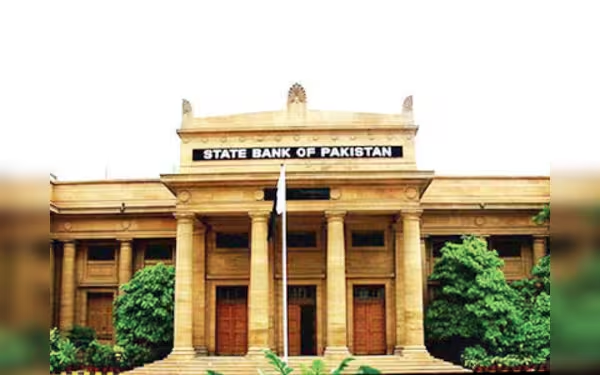Saturday, November 16, 2024 03:17 PM
Government Borrowing Surpasses Rs400 Billion in Pakistan
- Government borrowing from banks exceeds Rs400 billion.
- Islamic banks offer 14.1% profit on deposits.
- Economic challenges impact financial decisions in Pakistan.
 Image Credits: tribune.com.pk
Image Credits: tribune.com.pkGovernment borrowing from banks in Pakistan surpasses Rs400 billion, raising concerns about economic implications and banking sector stability.
The financial landscape in Pakistan has recently witnessed a significant shift, as the government’s borrowing from banks has surged past Rs400 billion. This development raises important questions about the implications for the economy and the banking sector. With the government relying heavily on bank loans, it is crucial to understand how this affects both the financial institutions and the general public.
In the current economic climate, banks play a vital role in providing the necessary funds for government projects and initiatives. However, this heavy borrowing can lead to increased interest rates and tighter liquidity in the market. As the government seeks to finance its expenditures, it is essential for citizens to be aware of how these financial maneuvers can impact their savings and investments.
Meanwhile, Islamic banks are stepping up their game by offering a competitive profit rate of 14.1% on customer deposits. This rate is designed to attract more customers who are looking for ethical banking options. However, it is worth noting that Islamic banks provide 4% less profit compared to their conventional counterparts. This discrepancy raises a critical point for depositors: while Islamic banks offer a Sharia-compliant alternative, the lower profit rate may deter some customers from choosing this option.
As individuals weigh their banking choices, it is essential to consider not just the profit rates but also the ethical implications of their financial decisions. Islamic banking promotes a system that avoids interest-based transactions, which can be appealing to many. However, the trade-off in profit rates is a factor that cannot be ignored.
The government’s borrowing from banks exceeding Rs400 billion is a clear indicator of the current economic challenges facing Pakistan. As citizens navigate their financial options, understanding the differences between conventional and Islamic banking becomes increasingly important. Ultimately, making informed decisions about where to deposit money can lead to better financial outcomes for individuals and contribute to the overall stability of the economy.













